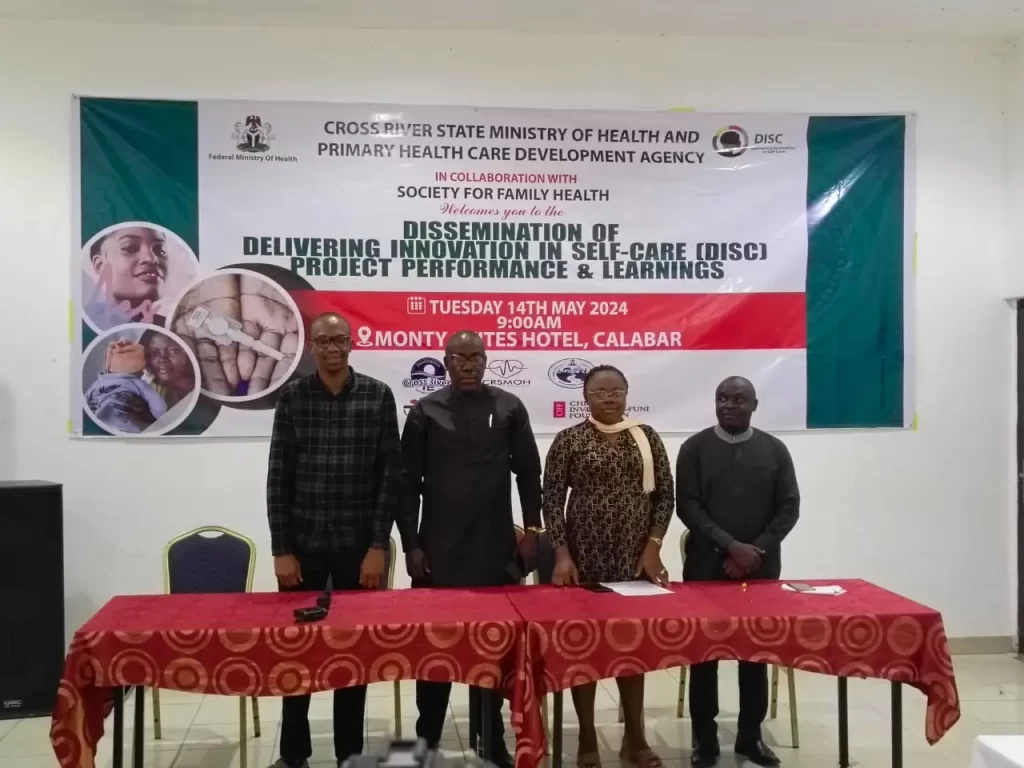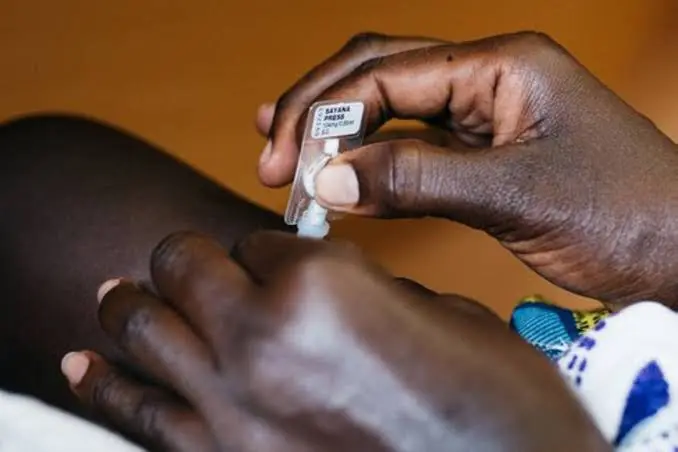Have you ever considered family planning and you feel like you can’t go to the hospital or health centre always and want to do it on your own at home? Well, your one-stop solution is here in Cross River State. You can now empower yourself as a woman, take full control of your reproduction life and plan it the way you want.
The Commissioner for Health in Cross River State, Dr Henry Ayuk, said the method is safe, and confidential, with less side effects and can last for as long as one year depending on the dosage.
Is there any age limit for this self-care family planning? Absolutely not, so long as you’re 18 years and above or in a child-bearing age.
“This project is unique in the sense that it has to do with self-care and we cannot underscore the position of self-care in reproductive health. Most women may be very shy – even when they need it because someone is attending to them, they tend to shy away but since this is self-administered, it takes care of that barrier,” Health Commissioner Ayuk, said during a meeting for the ‘Dissemination of Cross River State FP/DMPA-SC Performance: DISC Project Impact’ on 14th May 2024 in Calabar.
CONVERSEER reports that the self-care family planning Self-Injection (SI), Depot Medroxyprogesterone Acetate Subcutaneous (DMPA/SC) also known as Sayana Press, which will be readily available across the 18 local government areas (LGAs) of the state was implemented by the Society for Family Health (SFH) in 31 facilities across 5 LGAs for a period of 2 years.
In an interview with journalists after the Delivering Innovation in Self-Care (DISC) Project Impact meeting, Dr Ayuk, who was ably represented by Dr Jonah Bassey Offor, Director of Public Health, Cross River State Ministry of Health, said, “The Delivering Innovation in Self-care (DISC) project has been in Cross River State for two years now. Basically, what the project did was to allow women or empower women to take responsibility for their reproductive and sexual health. You have different forms of contraceptives, but this one entails the woman giving herself the injection at any convenient time, which is different from other forms of contraceptive devices – the injection or drugs being given to the woman.
“The good thing about this method is that it empowers the woman. The woman makes informed decisions on her reproductive health. And for these two years they’ve been with us, they’ve achieved a lot. Today is the day they had to set aside for them to inform us of their findings, the impact of the project in Cross River State, and for us as a ministry and as a state to take ownership of this project.
“For these two years they’ve been here, they work in five LGAs – Akamkpa, Akpabuyo, Ikom, Boki and Obanliku, and their successes have been wonderful. As a ministry we gave them the enabling environment for them to function, it is now our responsibility for us to embrace this self-care activity and make sure that it cuts across the 18 LGAs.”
READ ALSO: CJID moves to enhance fact-checking in journalism, introduces AI tools
The Health Commissioner said, “In our last budget cycle, the budget for family planning was captured, so, it is left for the family planning coordinator in the Ministry of Health to start writing memos to His Excellency for the release of funds for family planning activities in Cross River State.”
He said the drug is free of charge. “For the people that have benefitted from this drug, they didn’t pay anything. And if you are going to any health facility you are not expected to pay any money. When you go to any health facility and they ask you to pay money for this injectible contraceptive, the best thing you need to do is to report to the Ministry of Health,” he maintained.

Dr Oluwaseun Adeleke, Senior Learning Advisor, DISC Project, Society for Family Health (SFH), expressed gratitude for the support received from the Population Services Incorporated, Children Investment Ford Foundation, Cross River State Government and other stakeholders.
He said they’ve driven the self-care uptake from around 21% to 66%, adding that more is needed to be done to achieve 100%.
“I think we have enjoyed broad support, and it’s because the state understands the value this project holds for the people of Cross River State. I know that the state has the people at heart and it’s trying to ensure they have the best care. This is one of those activities to achieve quality universal health care coverage. The state contraceptive prevalence rate currently could be better and the target is there.
“There are challenges to achieving this target that have been created by current incidences of pandemic like COVID-19, distance of health facilities and economic issues that keep emerging. You look at the petrol price, you look at the cost of transportation – not everybody has that luxury of accessing health facilities everywhere. There are different barriers. So, this is an opportunity for women even in their private spaces to continue to exercise their rights to reproductive health. And that’s why we are here.
“The collaboration between the Ministry of Health is why we have had so much success. The self-care uptake was around 21 per cent at inception but right now we are looking at 66 per cent. This is among those who choose injectable DMPA-SI contraceptives.
“That’s really significant, and I must say that because of this collaboration we have enjoyed in Cross River and other states, we’ve been able to make a dent in national impact. For the national average now, we are looking at an average of 30 to 42 per cent SI uptake which is really significant, and it is driven mostly by the state where we work. That is, 15 states.”
Adeleke charged the government at various levels to ensure continuity of quality health services, adding, “We want the government to strengthen the existing systems. Make them more effective and able to inculcate and integrate proven interventions.”
On her part, Dr (Mrs) Vivian Mesembe Otu, Director General of the Cross River State Primary Health Care Development Agency, said for the past few years that SFH have been in the state, they have impacted a lot of family planning providers across the state.
“I will look at their impact from two perspectives, that is, capacity building of family planning providers in the 18 LGAs and then the mobilisation at the community level for increased service uptake. I will say that’s very key and they’ve been able to achieve,” the DG said.
Dr Otu who was represented by Bassey Etim, Director of Community and Family Health Services, Cross River State Primary Healthcare Development Agency, said they intend to equip the Human Resource (HR) with the knowledge to ensure the project reaches every community in the state.
“What we are going to do is to ensure that all those providers that have been trained, we form a kind of pool so that they will cascade this training down to the upcoming health care workers.
“We keep mobilising communities at any given time and then engage the community structures by continuously preaching the message because this thing will not be achieved in one day,” Otu said, adding that they will leverage the resources of the Society for Family Health “to ensure that wherever they find themselves, they keep preaching the message for increased acceptance and uptake of the service.”




